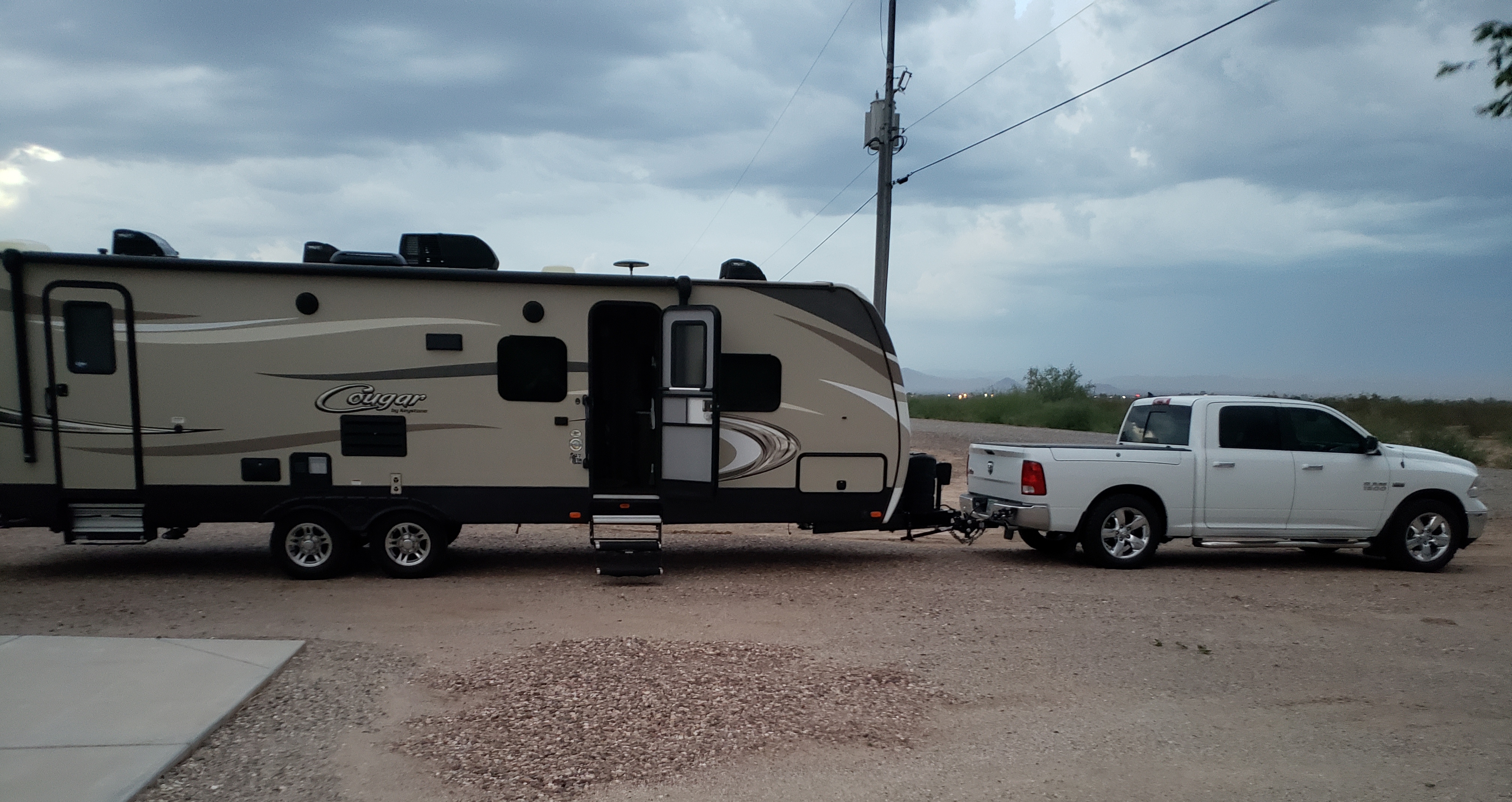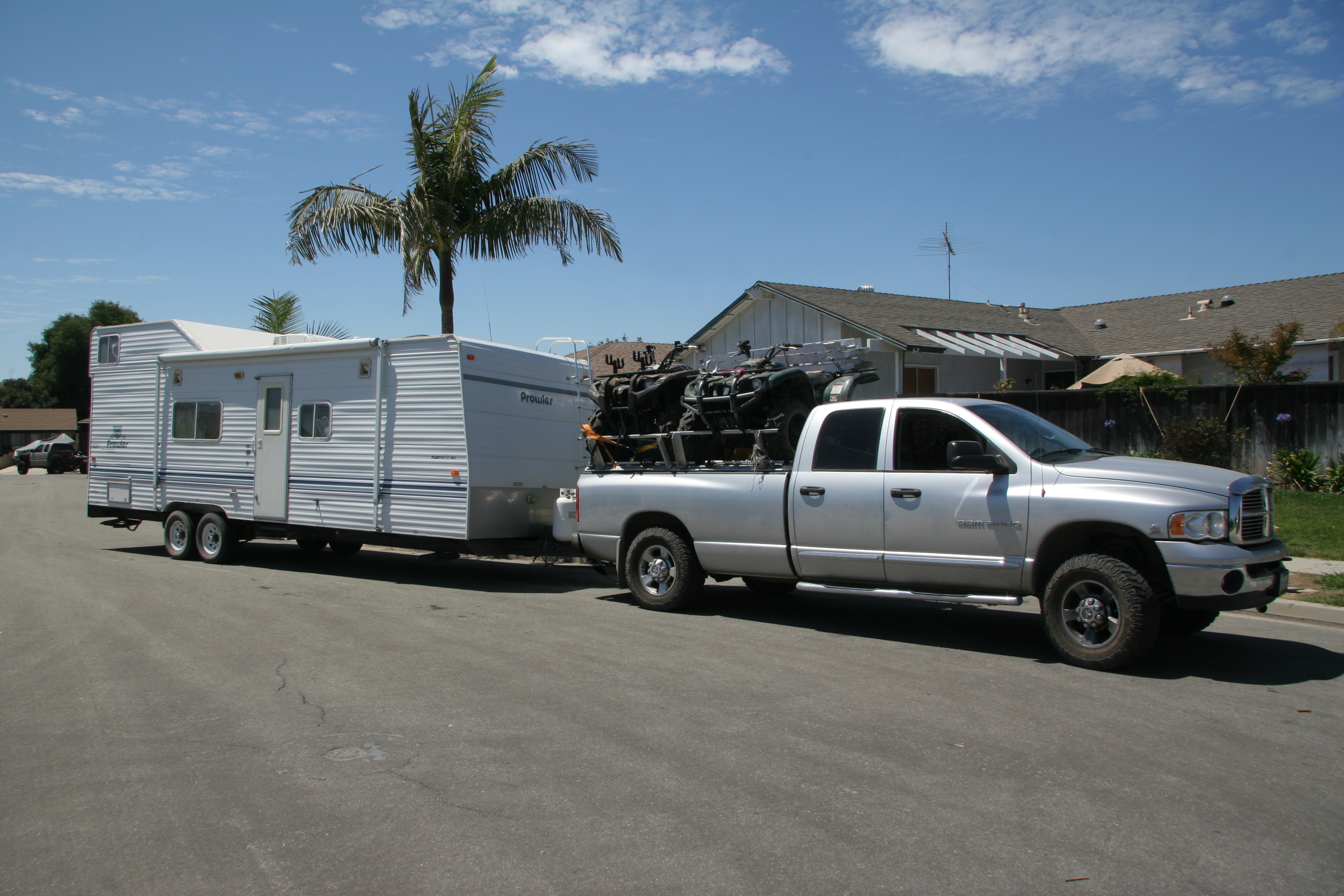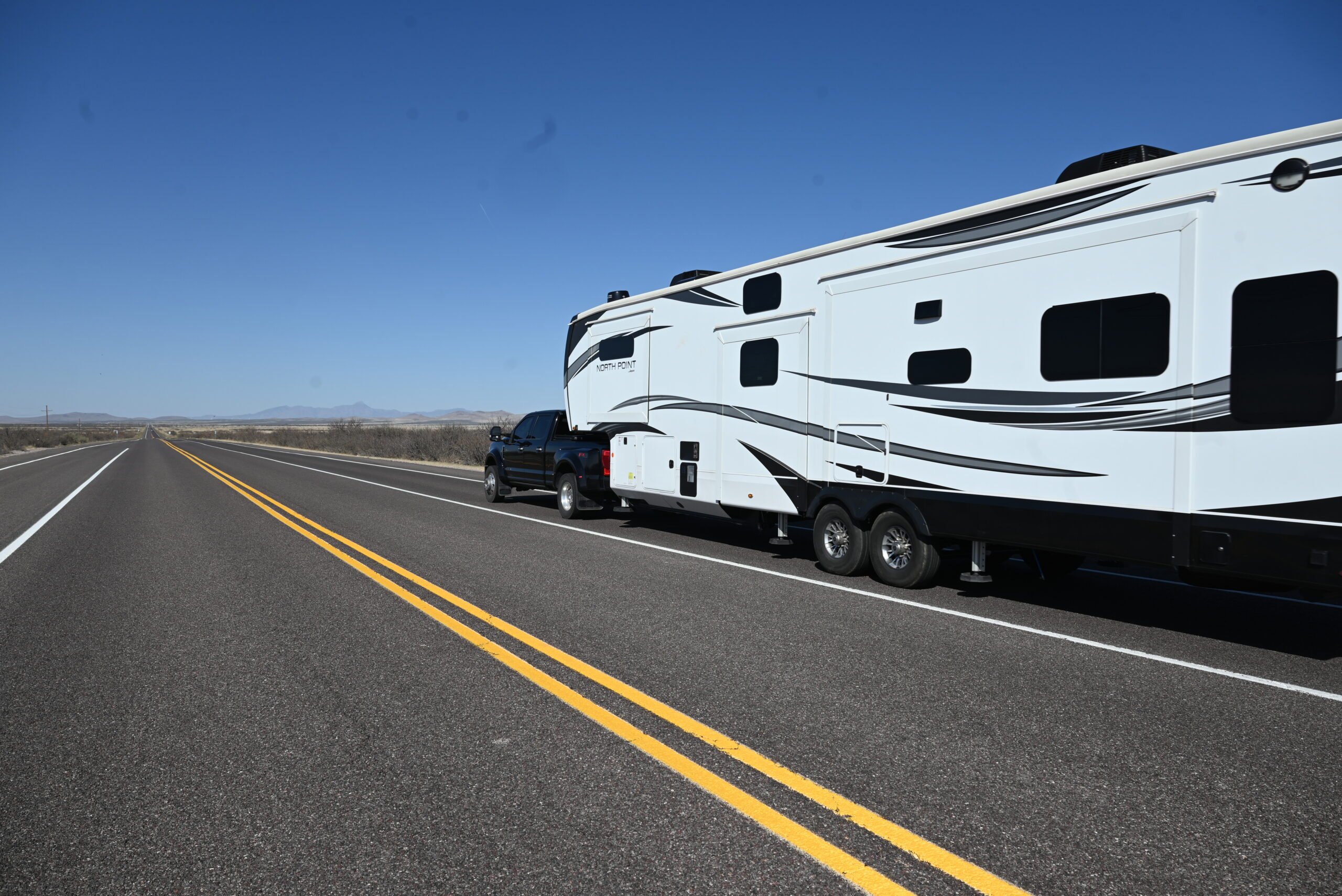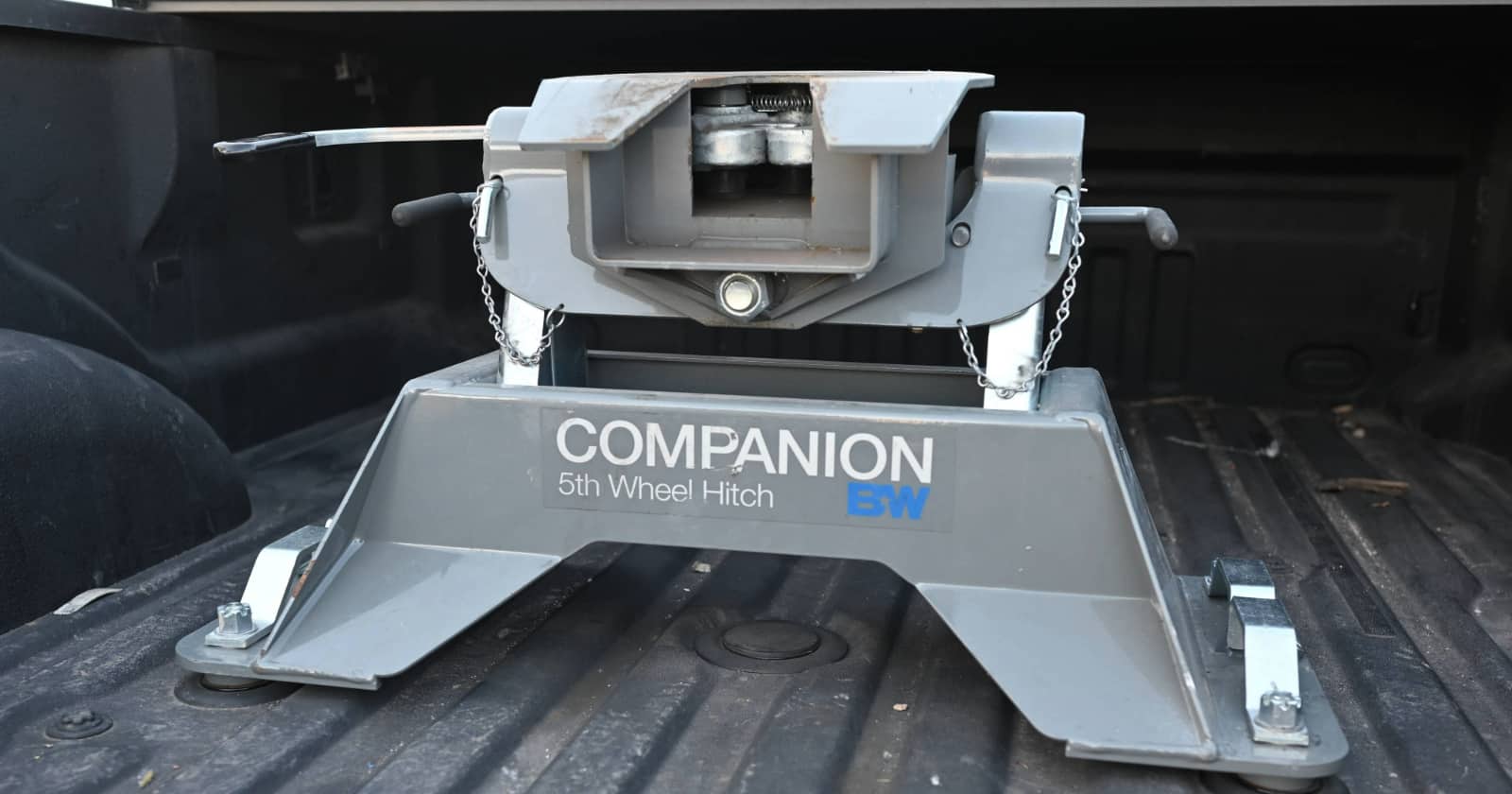
Don’t Tow Your Camper Trailer Without This
RV living should be relaxing; that’s why you got an RV after all, right? But when pulling your trailer, you might find yourself having more white-knuckle moments than you bargained for. You probably need an equalizer hitch.
A strong wind, a semi-truck passing you by, or just starting and stopping can all be stress-inducing moments if you haven’t invested in an equalizer hitch. Also known as a “weight-distribution trailer hitch”, an equalizer hitch is important for evenly distributing weight between your tow vehicle and trailer.
According to JOSH Transportation Systems, over 400 people have died every year of the last 20 in accidents involving utility trailers towed by passenger vehicles. Over 20,000 people in the last 20 years have had to seek medical attention for accidents involving utility trailers towed by passenger vehicles. Here are five reasons to invest in your own equalizer hitch and to prevent yourself from becoming a statistic.

Your trailer weight vs your vehicle’s weight
If your trailer weight is more than 50% of your vehicle’s weight, you will definitely want to invest in an equalizer hitch. If your trailer falls into classes 1 and 2, you won’t need an equalizer hitch but the heavier trailers in classes 3-5 do.
By using adjustable spring bars and tension, an equalizer hitch distributes the weight of the trailer tongue to the trailer and vehicle axles evenly. Equalizer hitches shift the weight from the center of the hitch simultaneously forward (to the rear of your tow vehicle) and backward (to the front of the trailer).
Improve tow vehicle sag
When towing your trailer, is the back of your vehicle sagging down while your lights start pointing upward? This is a classic problem solved by using an equalizer hitch.

This “sagging” is caused by an imbalance of the proportion of gross trailer weight (GTW or the total weight of the trailer including its cargo) to tongue weight (TW or the weight that bears down on the hitch.) Too much TW versus GTW will make your trailer dive, causing the rear of your car to dip.
Smoother driving
When the weight is not equalized between your trailer and vehicle, stopping, starting, and turning can all be a little hair-raising. When towing a trailer without an equalizer hitch, the trailer’s weight is transferred to the rear axle of your tow vehicle.
With the weight lessened off your tow vehicle’s front axle, you have less control over steering, your traction, and your start and stopping power. The spring bars of an equalizer hitch help apply leverage to all axles of both your trailer and vehicle. Once your system’s weight is evenly distributed, you’ll have a much smoother ride.
Control swaying
On the note of smoother driving, an equalizer hitch will also help control side-to-side sway of your trailer while driving, one of the biggest contributors to accidents.

However, not all equalizer hitches come with built-in sway control. Those that don’t can have sway control added on. Getting a hitch with built-in sway control is recommended since it’s typically more effective than the add-on variety. Sway control devices are essentially adding friction points to the hitch; an add-on device is a friction arm.
Watch this video of a camper crashing on the highway as an example of what can happen when your travel trailer starts to sway.
Tow to your highest capacity
For those carrying high payloads, you’ll definitely want to tow to your highest capacity, which can be done by investing in an equalizer hitch. The heavier the load, the more important to equalize the weight and use a weight-distribution hitch.
When picking an equalizer hitch, it will say what its maximum capacity is. While the hitch won’t increase your towing capacity, it will let you use the maximum capacity.

Slow down vehicle and trailer wear
The reasons for getting an equalizer hitch—driving control, sway, vehicle sag—are the same causes of wear on your tow vehicle and trailer. Getting an equalizer hitch will help keep the wear on both vehicles down.
For instance, if your tow vehicle’s front tires aren’t hitting the ground evenly with the back tires, the back tires are going to wear out their tread much faster.
A trailer that sways left to right or bounces up and down is putting unnecessary strain on parts, meaning they’ll wear out faster. With so much money invested into both your trailer and tow vehicle, why not invest a little more in an equalizer hitch to keep everything moving smoothly?
Picking an equalizer hitch
If you’ve decided you need an equalizer hitch, now you’ll need to pick which kinds. There are two types: trunnion bars and round bars, differentiated by the spring bars of the hitch.
Trunnion bars are square springs bars that secure into the center of the ball mount, while round bars slide into the bottom of the ball mount. Trunnion bars are typically designed to be used with heavier weight applications, they’re easier to install than round bars, and they offer more ground clearance.
Also, check that the hitch you pick is rated with the appropriate weight distribution rating. You’ll want to make sure your hitch is for your class of trailer and it can accommodate the load you’re carrying.



